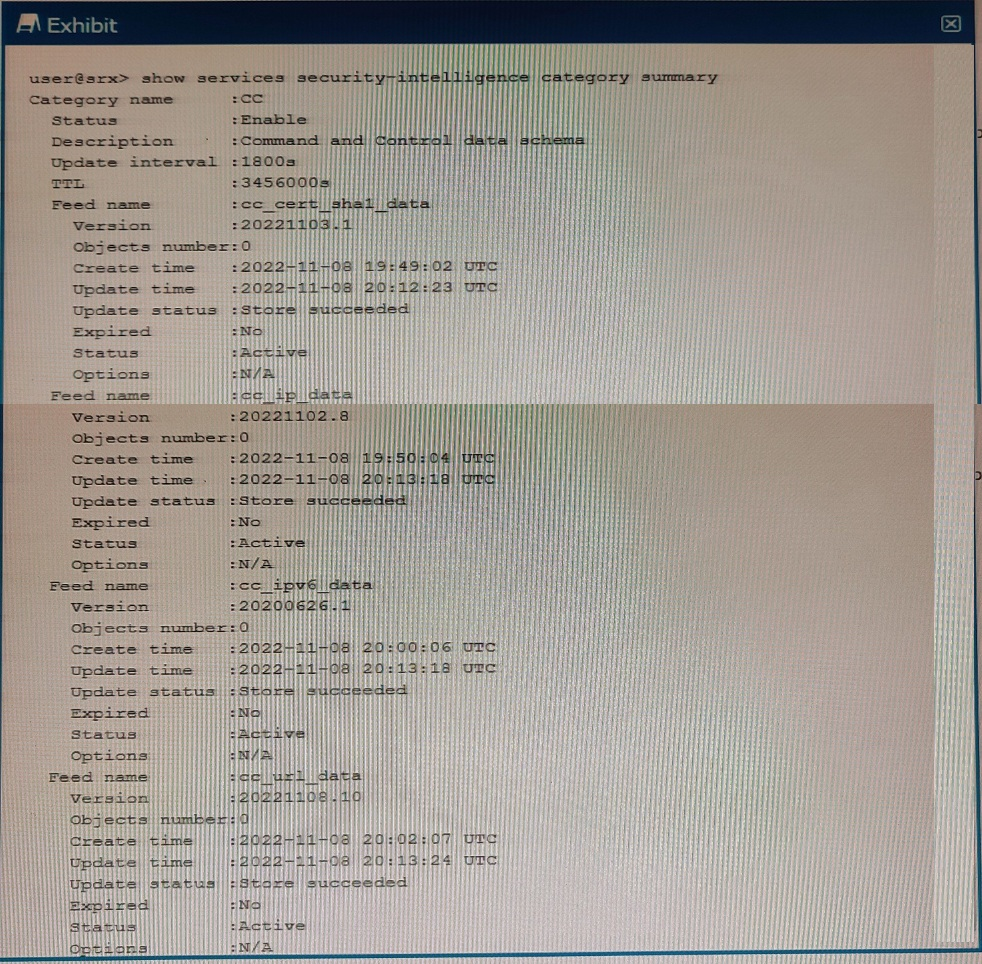At ValidExamDumps, we consistently monitor updates to the Juniper JN0-335 exam questions by Juniper. Whenever our team identifies changes in the exam questions,exam objectives, exam focus areas or in exam requirements, We immediately update our exam questions for both PDF and online practice exams. This commitment ensures our customers always have access to the most current and accurate questions. By preparing with these actual questions, our customers can successfully pass the Juniper Security, Specialist exam on their first attempt without needing additional materials or study guides.
Other certification materials providers often include outdated or removed questions by Juniper in their Juniper JN0-335 exam. These outdated questions lead to customers failing their Juniper Security, Specialist exam. In contrast, we ensure our questions bank includes only precise and up-to-date questions, guaranteeing their presence in your actual exam. Our main priority is your success in the Juniper JN0-335 exam, not profiting from selling obsolete exam questions in PDF or Online Practice Test.
How does Juniper ATP Cloud protect a network from zero-day threats?
Juniper ATP Cloud is a cloud-based service that provides advanced threat prevention and detection for your network. It integrates with SRX Series firewalls and MX Series routers to analyze files and network traffic for signs of malicious activity. Juniper ATP Cloud protects a network from zero-day threats by using dynamic analysis, which is a method of executing files in a sandbox environment and observing their behavior and network interactions. Dynamic analysis can uncover unknown malware that may evade static analysis or signature-based detection methods.
Which two features are configurable on Juniper Secure Analytics (JSA) to ensure that alerts are triggered when matching certain criteria? (Choose two.)
The two configurable features on Juniper Secure Analytics (JSA) that can be used to ensure that alerts are triggered when matching certain criteria are events and tests. Events refer to the collection of data from different sources, while tests are used to define the criteria for which an alert is triggered. For example, you can use events to collect data from a firewall and tests to define criteria such as IP address, port number, and the type of traffic. The Security, Specialist (JNCIS-SEC) Study guide provides further information on how to configure these features on JSA.
Exhibit

You just finished setting up your command-and-control (C&C) category with Juniper ATP Cloud. You notice that all of the feeds have zero objects in them.
Which statement is correct in this scenario?
According to the Juniper Networks JNCIS-SEC Study Guide, when you set up your command-and-control (C&C) category with Juniper ATP Cloud, all of the feeds will initially have zero objects in them. This is normal, as it can take a few minutes for the feeds to download. No action is required in this scenario and you will notice the feeds start to populate with objects once the download is complete.
What are two types of system logs that Junos generates? (Choose two.)
The two types of system logs that Junos generates are control plane logs and data plane logs. Control plane logs are generated by the Junos operating system and contain system-level events such as system startup and shutdown, configuration changes, and system alarms. Data plane logs are generated by the network protocol processes and contain messages about the status of the network and its components, such as routing, firewall, NAT, and IPS. SQL log files and system core dump files are not types of system logs generated by Junos.
Which two statements are correct about the cSRX? (Choose two.)
The two statements that are correct about the cSRX are that it supports firewall, NAT, IPS, and UTM services, and that it has three default zones: trust, untrust, and management. The cSRX is a software-defined security solution that provides comprehensive network security capabilities and is designed for virtualized environments. It supports firewall, NAT, IPS, and UTM services to protect against threats, as well as BGP, OSPF, and IS-IS routing services for routing functionality. Additionally, the cSRX has three default zones: trust, untrust, and management. The trust zone is used to define traffic that is allowed to enter the network, the untrust zone is used to define traffic that should be blocked from entering the network, and the management zone is used to manage the device itself. The cSRX does not support Layer 2 'bump-in-the-wire' deployments.